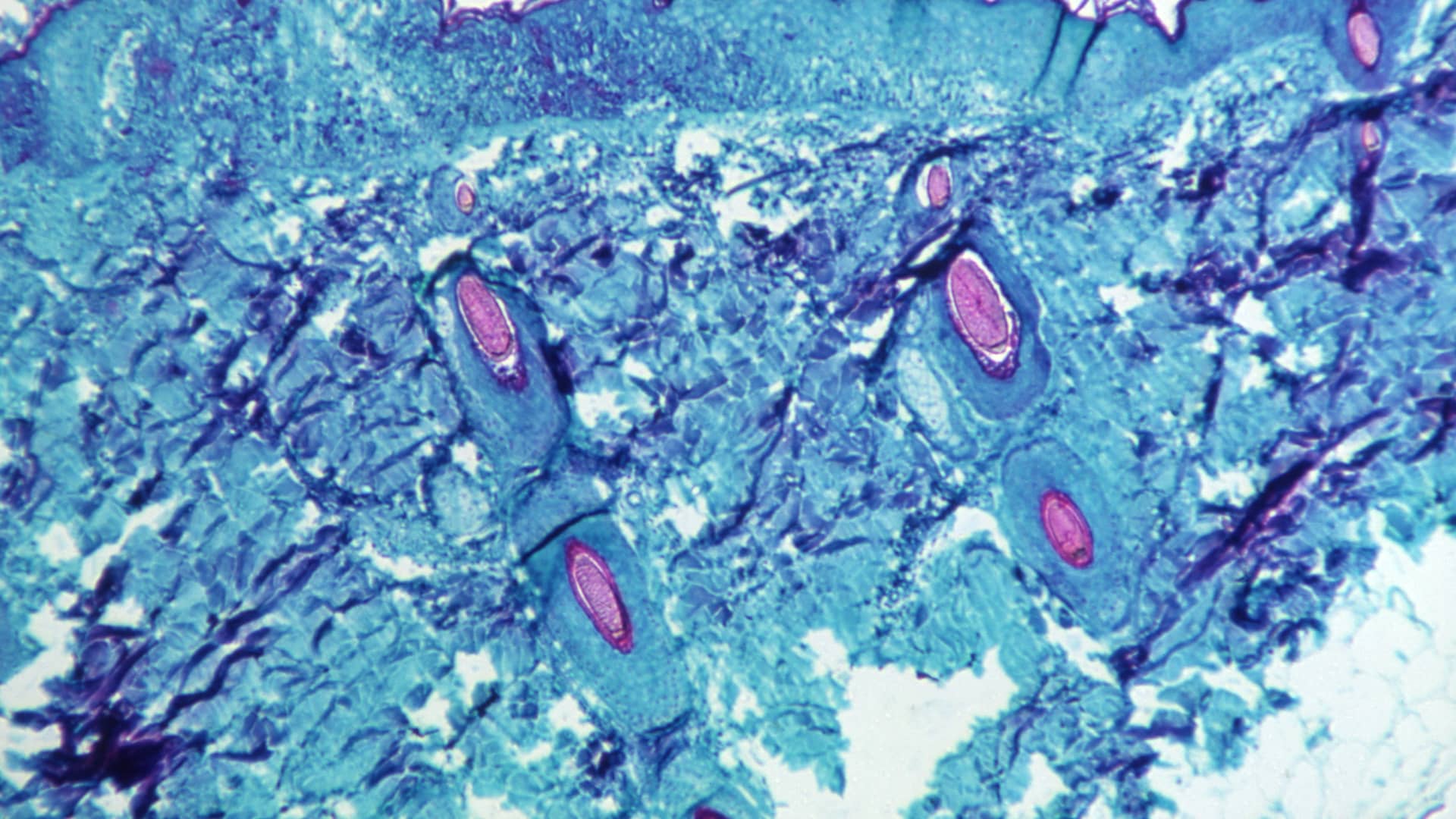
A section of skin tissue, harvested from a lesion on the skin of a monkey, that had been infected with monkeypox virus, is seen at 50X magnification on day four of rash development in 1968.
CDC | Reuters
The Centers for Disease Control and Prevention on Monday alerted gay and bisexual men that monkeypox appears to be spreading in the community globally, cautioning people to take precautions if they have been in close contact with someone who may have the virus and to be on the lookout for symptoms.
Dr. John Brooks, a CDC official, emphasized that anyone can contract monkeypox through close personal contact regardless of sexual orientation. However, Brooks said many of the people affected globally so far are men who identify as gay or bisexual. Though they may have greater chance of exposure to monkeypox right now, that doesn’t mean the risk is limited only to the gay and bisexual community, he said.
“We want to help people make the best informed decisions to protect their health and the health of their community from monkeypox,” Brooks said.
Monkeypox is not a sexually transmitted disease, which are generally passed through semen or vaginal fluid, but it can be transmitted through sexual and intimate contact as well as through shared bedding. The virus spreads through contact with body fluids and sores, Brooks said. It’s important for physicians and individuals to be aware of the symptoms associated with monkeypox, particularly anal or genital lesions that can be confused with herpes, syphilis or chickenpox, he said.
The U.S. has confirmed one case of monkeypox in Massachusetts and four cases of orthopox in New York City, Florida and Utah, according to Dr. Jennifer McQuiston, a CDC official. State labs have tests that can identify orthopox, which are presumed to be monkeypox, but they have to be sent to the CDC in Atlanta for further analysis to confirm that diagnosis, McQuiston said.
The cases identified in the U.S. are a milder West African strain, McQuiston said. Most people who catch the virus recover in two to four weeks without specific treatments, she said.
This is breaking news. Please check back for updates.




